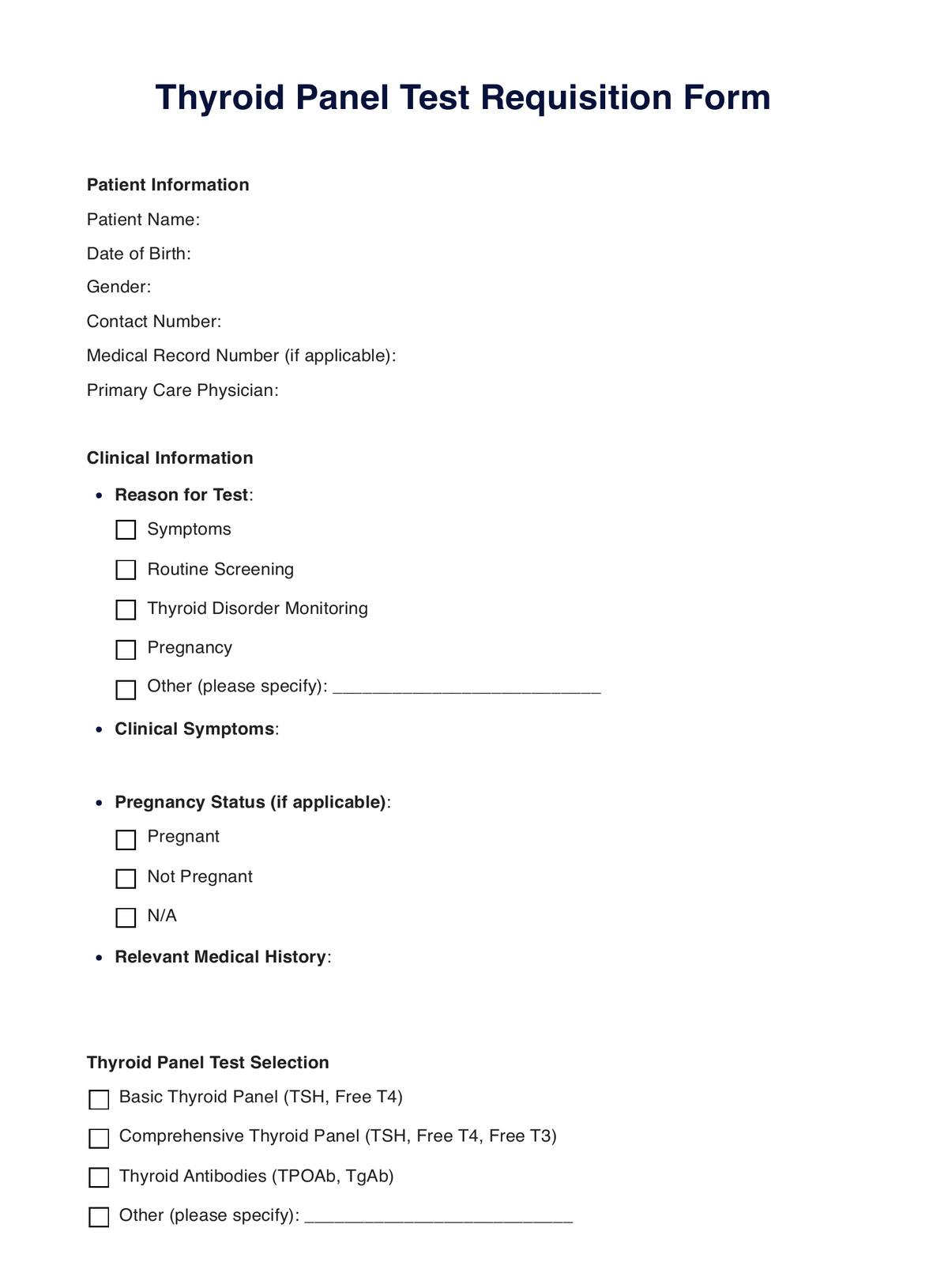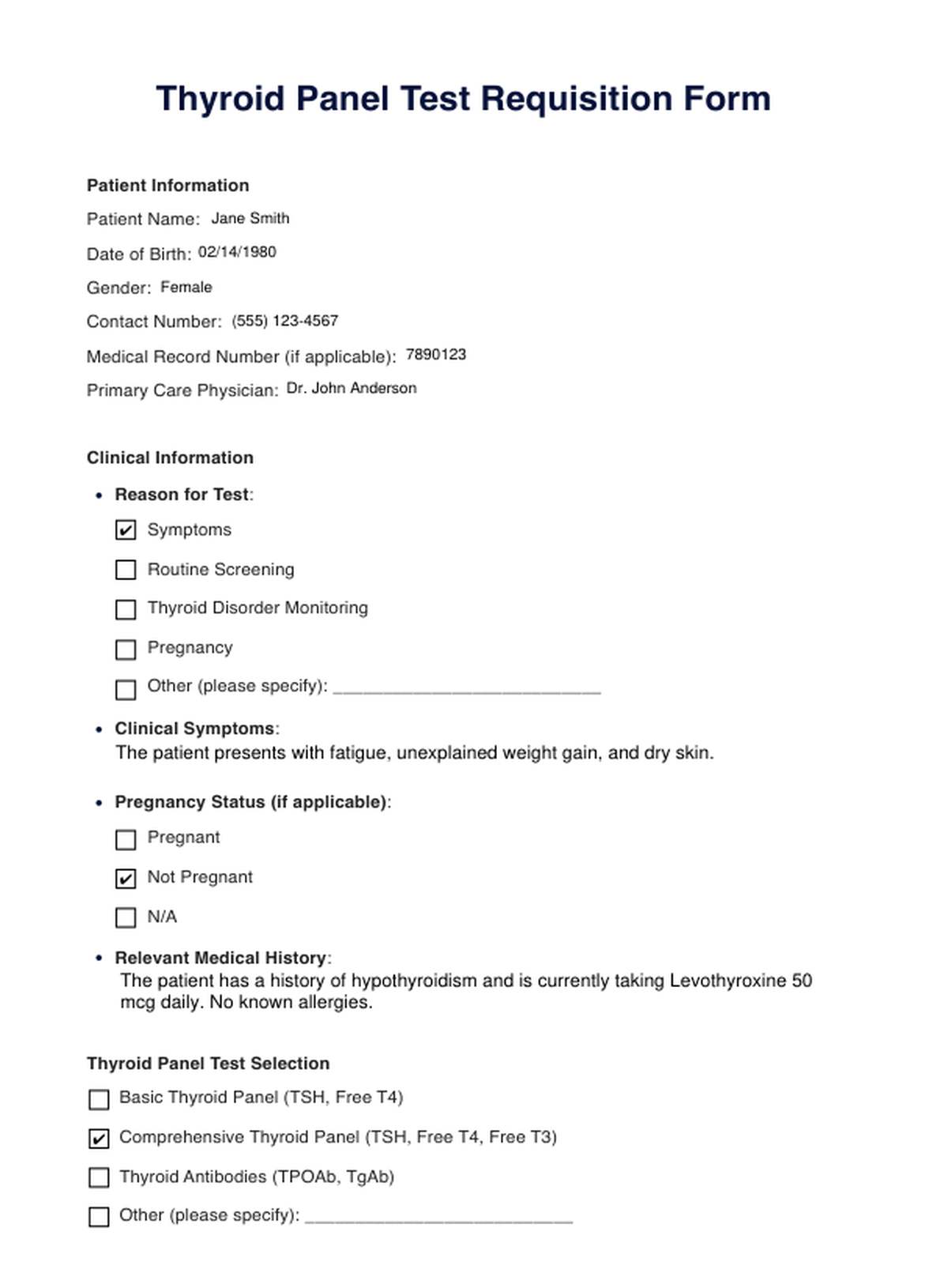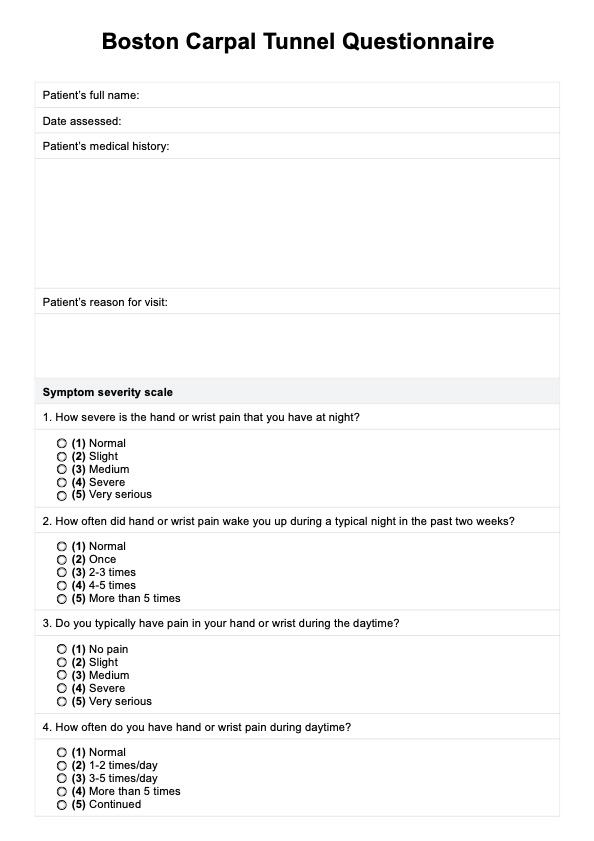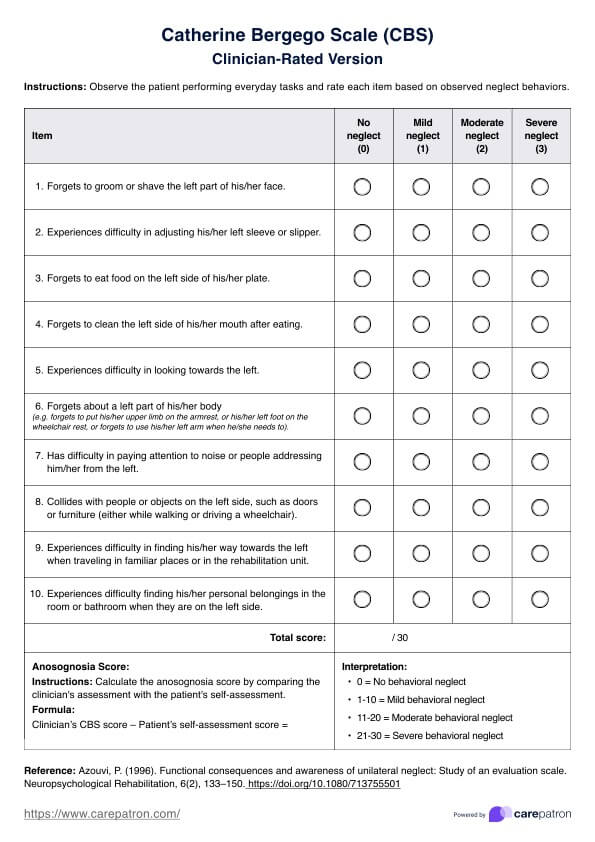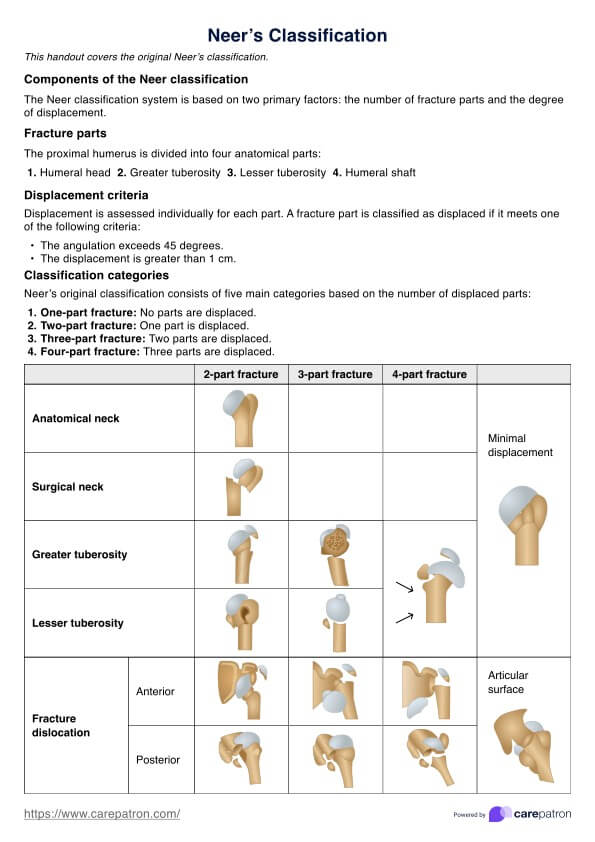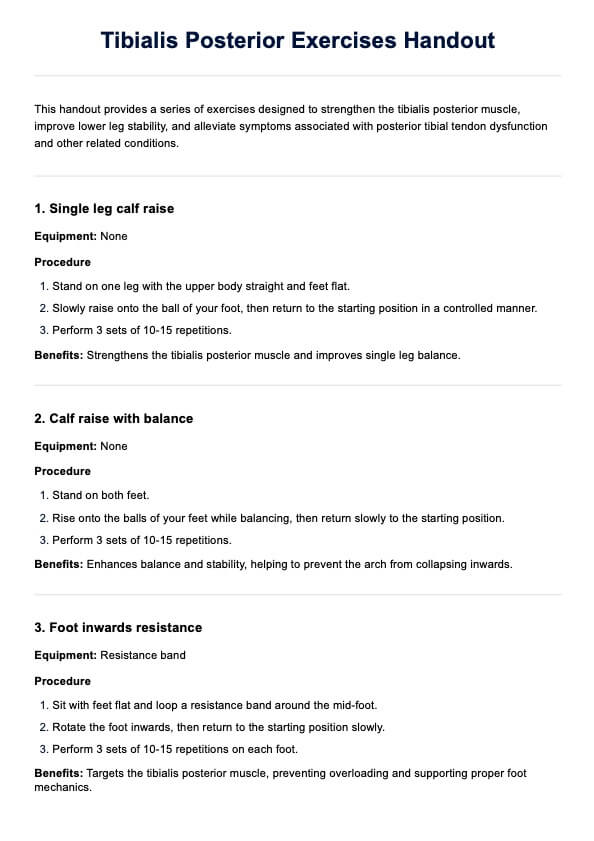Thyroid Panel
Optimize your thyroid health with a comprehensive Thyroid Panel Test. Understand your thyroid function today.


What Is a Thyroid Panel Test?
A thyroid panel test is a blood test that measures various markers related to the thyroid gland's function. The thyroid is a small, butterfly-shaped gland located in the neck, and it plays a crucial role in regulating the body's metabolism and various other physiological processes. A thyroid panel typically includes several different blood tests that provide information about the thyroid's activity and can help diagnose thyroid disorders.
The key components of a standard thyroid panel test include:
- TSH (Thyroid-Stimulating Hormone): TSH is produced by the pituitary gland and stimulates the thyroid to release thyroid hormones. Elevated or reduced TSH levels can indicate issues with thyroid function.
- T4 (Thyroxine): T4 is a thyroid hormone produced by the thyroid gland. It is mainly in its inactive form and is converted to the more active hormone T3 in the body.
- T3 (Triiodothyronine): T3 is the active form of thyroid hormone affecting metabolism. Measuring T4 and T3 levels can help assess the thyroid's overall function.
- Free T4 and Free T3: These tests measure the levels of unbound (free) T4 and T3 hormones in the blood, which are considered more accurate indicators of thyroid function than total T4 and T3.
- Thyroid Antibodies: These tests, including anti-thyroid peroxidase antibodies (TPOAb) and anti-thyroglobulin antibodies (TgAb), can help identify autoimmune thyroid conditions like Hashimoto's thyroiditis or Graves' disease.
Thyroid panels are commonly used to diagnose thyroid disorders, monitor treatment, determine medication dosage, and evaluate related health issues. Interpreting a thyroid panel with a patient's symptoms and history is key for diagnosis. If you have symptoms or suspect thyroid issues, your healthcare provider may recommend a panel test.
Thyroid Panel Template
Thyroid Panel Example
How Does It Work?
Consultation with Healthcare Provider
Initiate the process by consulting with your healthcare provider. Share your symptoms, concerns, and medical history related to thyroid issues.
Prescription or Referral
If your healthcare provider deems it necessary, they will provide you with a prescription for the thyroid panel test or refer you to a diagnostic laboratory.
Obtain the Thyroid Panel Test Form
You can usually obtain the printable thyroid panel test form in one of the following ways:
- Your healthcare provider may provide you with a printed copy of the form.
- Some healthcare facilities and labs can download the form from their website.
- You can also receive the form directly at the lab when you arrive for testing.
Complete Personal Information
Fill in personal details such as your name, date of birth, contact information, and medical record number (if applicable).
Insurance Information
Provide your insurance details or any other relevant billing information if required. This helps in processing the payment.
Medical History
The form may include a section to note any relevant medical history, current medications, and known allergies. This information can assist the lab in interpreting the results.
Test Selection
Specify the type of thyroid panel test you are undergoing (e.g., basic thyroid panel, comprehensive panel, or specific markers).
Consent and Authorization
Sign and date any consent and authorization sections to permit the lab to perform the test and share the results with your healthcare provider.
Payment Information
If applicable, provide payment information or verify your insurance to cover the testing costs.
Sample Collection
Take the completed form to the lab, where the blood sample will be collected for the thyroid panel test. Lab personnel will use the form to ensure accurate testing and billing.
Results and Follow-Up
Your provider will receive the results of the analysis. A follow-up appointment will be scheduled to discuss the findings and determine the necessary steps.
When Would You Use This Test?
The Thyroid Panel Test is used in various clinical scenarios to assess thyroid function and diagnose thyroid disorders. Here are specific instances when this test is commonly employed:
- Symptomatic Patients: When individuals present with unexplained weight changes, fatigue, mood swings, hair loss, or skin abnormalities, healthcare practitioners may order a Thyroid Panel Test to investigate potential thyroid dysfunction.
- Routine Health Screenings: As part of routine check-ups, especially for individuals with a family history of thyroid disorders or those at higher risk, healthcare providers may recommend thyroid panel tests to detect thyroid problems early.
- Thyroid Disease Monitoring: Patients diagnosed with thyroid disorders, such as hypothyroidism or hyperthyroidism, undergo regular thyroid panel tests to monitor their thyroid hormone levels and ensure effective treatment.
- Pregnancy and Fertility: During pregnancy, thyroid health is critical. Obstetricians may use thyroid panel tests to assess thyroid function in pregnant women, as imbalances can affect maternal and fetal health. Thyroid assessments may also be necessary for individuals experiencing fertility issues.
- Pediatric Thyroid Evaluation: Pediatricians use thyroid panel tests when children exhibit growth or developmental issues that could be linked to thyroid disorders.
- Autoimmune Thyroid Conditions: Rheumatologists order thyroid panel tests when investigating autoimmune thyroid disorders like Hashimoto's thyroiditis, often associated with autoimmune diseases.
- Cardiovascular Health: Cardiologists may use thyroid panel tests in patients with unexplained cardiovascular problems, as thyroid disorders can impact heart health.
- Skin and Hair Abnormalities: Dermatologists may request thyroid panel tests for patients with skin conditions or hair loss attributed to thyroid dysfunction.
- Psychiatric Symptoms: Mental health professionals, such as psychiatrists and psychologists, may consider thyroid panel tests for individuals with mood disorders or psychiatric symptoms related to thyroid imbalances.
- Surgical Preparations: Before thyroid surgery, surgeons order thyroid panel tests to evaluate thyroid function and determine the procedure's necessity.

What do the Results Mean?
Interpreting the results of a Free Thyroid Panel Test is crucial for assessing thyroid function and identifying potential thyroid disorders. Here are common components of the panel and what their results typically mean:
TSH (Thyroid-Stimulating Hormone)
- High TSH Levels: Elevated TSH often indicates hypothyroidism, where the thyroid is underactive and not producing enough thyroid hormones.
- Low TSH Levels: Low TSH levels can suggest hyperthyroidism, where the thyroid is overactive and producing excess thyroid hormones.
Free T4 (Thyroxine)
- High Free T4 Levels: Elevated free T4 levels may indicate hyperthyroidism, as excess thyroxine is being produced.
- Low Free T4 Levels: Decreased free T4 levels can be a sign of hypothyroidism, as insufficient thyroxine is being produced.
Free T3 (Triiodothyronine)
- High Free T3 Levels: Elevated free T3 levels often accompany hyperthyroidism, indicating an excess of active thyroid hormone.
- Low Free T3 Levels: Reduced free T3 levels can suggest hypothyroidism, as there is an insufficient amount of active thyroid hormone in the body.
Thyroid Antibodies (TPOAb and TgAb
Presence of Thyroid Antibodies: The presence of these antibodies suggests an autoimmune thyroid condition, such as Hashimoto's thyroiditis or Graves' disease, where the immune system mistakenly attacks the thyroid gland.
Interpreting the results requires considering these markers in combination, as they provide a comprehensive view of thyroid function. Additionally, clinical symptoms, patient history, and physical examination findings are essential for accurate diagnosis and treatment decisions.
Abnormal results may prompt further testing or medical intervention, including medication, lifestyle modifications, or specialist referrals, depending on the specific thyroid disorder identified.
It's important to note that reference ranges for thyroid markers can vary between laboratories. Hence, healthcare providers rely on the reference values provided by the specific lab that conducted the test. Therefore, results should be evaluated in the context of the lab's reference ranges and consideration of the individual patient's clinical presentation. You can also use this prescription template to fortify your practice and client achievements.
Research & Evidence
The understanding of thyroid function and its impact on health has evolved over centuries. It was only in the early 20th century that the thyroid gland's hormonal role became clear.
In 1956, the development of the radioimmunoassay (RIA) by Rosalyn Yalow and Solomon Berson marked a significant breakthrough in measuring thyroid hormones accurately. Subsequent technological advancements have led to more specific and sensitive assays, allowing for the precise measurement of thyroid hormones, including TSH, T3, and T4.
Research on thyroid function has been instrumental in establishing the clinical importance of thyroid hormones and the need for accurate testing. Over the years, numerous studies have demonstrated the critical role of the thyroid in regulating metabolism, energy, and various physiological functions (Harvard Health, 2019).
The use of thyroid panel tests has been supported by extensive clinical research, helping healthcare providers diagnose and manage thyroid disorders effectively (Everlywell, 2023).
Research evidence has linked abnormal thyroid function to a wide range of health issues, from cardiovascular disease and metabolic disorders to psychiatric conditions and fertility problems (Shomon, 2023). These findings highlight the importance of thyroid panel tests in identifying and managing thyroid-related health concerns.
Additionally, autoimmune thyroid diseases have provided insights into the role of thyroid antibodies in conditions like Hashimoto's thyroiditis and Graves' disease. These have contributed to including thyroid antibody tests in thyroid panel assessments.
The evolution of thyroid research and the development of advanced diagnostic tools like the Thyroid Panel Test have significantly improved the diagnosis and management of thyroid disorders, ultimately leading to better patient outcomes and quality of care. Ongoing research continues to refine our understanding of thyroid function and its impact on overall health.
References
Everlywell. (2023, June 8). At-Home Thyroid Blood Test | Check TSH levels | Everlywell. https://www.everlywell.com/products/thyroid-test/
Harvard Health. (2019, February 7). Do you need a thyroid test? https://www.health.harvard.edu/womens-health/do-you-need-a-thyroid-test
Shomon, M. (2023, October 4). Reading your thyroid blood test results. Verywell Health. https://www.verywellhealth.com/interpret-your-thyroid-test-results-3231840
Commonly asked questions
Healthcare providers, including primary care doctors, endocrinologists, obstetricians, and specialists in various fields, may request Thyroid Panel Tests based on patient symptoms and medical history.
Thyroid Panel Tests are used when patients exhibit symptoms like weight changes, fatigue, and mood swings or to diagnose and monitor thyroid disorders, assess thyroid health during pregnancy, and investigate autoimmune thyroid conditions.
Thyroid Panel Tests involve a blood draw to measure various thyroid markers like TSH, T4, T3, and thyroid antibodies. The results, in conjunction with clinical evaluation, help diagnose thyroid conditions and guide treatment.
The blood draw for a Thyroid Panel Test typically takes a few minutes. Results may be available within a few days to a week, depending on the laboratory's processing time.


